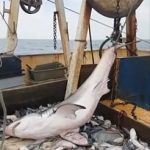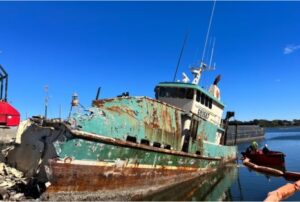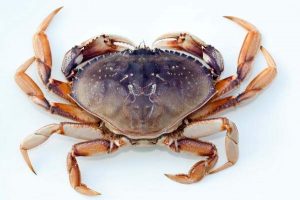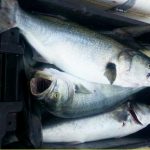Daily Archives: July 3, 2017
Coast Guard responds to report of 4 fishing vessels taking on water near Dillingham, Alaska
 The Coast Guard is responding to a report of four fishing vessels taking on water Monday in vicinity of Nushagak Bay near Dillingham. Coast Guard Sector Anchorage received a report Monday morning that four commercial fishing vessels engaged in salmon fishing began taking on water and became partially submerged in separate incidents. Three good Samaritan vessels and crews recovered all people safely from the four fishing vessels. There is a report of a diesel sheen around one of the fishing vessels that is partially submerged. There are no reports of injuries. “We are working closely with the Alaska Department of Environmental Conservation, Alaska Fish and Game and the Bristol Bay Native Association to mitigate any potential harm to the environment,” said Capt. Sean Mackenzie, Federal On-Scene Coordinator, commander for Sector Anchorage. The cause of the incidents is under investigation. For inquiries related to the salmon fisheries contact Lisa Krebs-Barsis, Aleutians/Western Alaska Unit Supervisor, Prevention, Preparedness and Response Program, ADEC, at 907-269-8487 (office); 907-542-5798 (cell). -USCG-
The Coast Guard is responding to a report of four fishing vessels taking on water Monday in vicinity of Nushagak Bay near Dillingham. Coast Guard Sector Anchorage received a report Monday morning that four commercial fishing vessels engaged in salmon fishing began taking on water and became partially submerged in separate incidents. Three good Samaritan vessels and crews recovered all people safely from the four fishing vessels. There is a report of a diesel sheen around one of the fishing vessels that is partially submerged. There are no reports of injuries. “We are working closely with the Alaska Department of Environmental Conservation, Alaska Fish and Game and the Bristol Bay Native Association to mitigate any potential harm to the environment,” said Capt. Sean Mackenzie, Federal On-Scene Coordinator, commander for Sector Anchorage. The cause of the incidents is under investigation. For inquiries related to the salmon fisheries contact Lisa Krebs-Barsis, Aleutians/Western Alaska Unit Supervisor, Prevention, Preparedness and Response Program, ADEC, at 907-269-8487 (office); 907-542-5798 (cell). -USCG-
Coast Guard searching for a missing fisherman south of Montauk, NY
 The Coast Guard is searching for a man that went missing from a fishing vessel 30 miles south of Montauk, New York, Monday afternoon. Missing is a 55-year old crewmember from the fishing vessel Miss Shauna. At approximately 4:30 p.m., watchstanders at Coast Guard Sector Long Island Sound were notified by VHF-Radio from Miss Shauna that the crewmember had not reported for his watch and could not be located aboard the boat. He was last seen at 4:00 p.m., Monday. Sector watchstanders issued an urgent marine information broadcast (UMIB) and launched several Coast Guard assets. Involved in the search are: Coast Guard Station Montauk Coast Guard Station Shinnecock Coast Guard Air Station Cape Cod Coast Guard Cutter Shrike If anyone has information regarding this case, please call Sector Long Island Sound at 203-468-4401. -USCG- 18:40
The Coast Guard is searching for a man that went missing from a fishing vessel 30 miles south of Montauk, New York, Monday afternoon. Missing is a 55-year old crewmember from the fishing vessel Miss Shauna. At approximately 4:30 p.m., watchstanders at Coast Guard Sector Long Island Sound were notified by VHF-Radio from Miss Shauna that the crewmember had not reported for his watch and could not be located aboard the boat. He was last seen at 4:00 p.m., Monday. Sector watchstanders issued an urgent marine information broadcast (UMIB) and launched several Coast Guard assets. Involved in the search are: Coast Guard Station Montauk Coast Guard Station Shinnecock Coast Guard Air Station Cape Cod Coast Guard Cutter Shrike If anyone has information regarding this case, please call Sector Long Island Sound at 203-468-4401. -USCG- 18:40
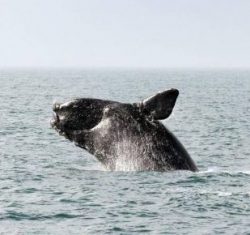
Beaufort Mayor Billy Keyserling renews push against seismic testing as a deadline nears
Beaufort Mayor Billy Keyserling has formally opposed federal permits that would allow companies conducting seismic testing to harass marine life as a byproduct of the process. A public comment period seeking input on the authorizations ends Thursday. Five companies have applied to use seismic air guns to survey the Atlantic Ocean for potential oil and gas deposits. Seismic testing requires separate approval from the National Oceanic and Atmospheric Administration for the companies “to incidentally, but not intentionally, harass marine mammals.” The proposed testing would violate federal law by affecting more than a small number of animals and would have more than the “negligible impact” required for the authorizations,, click here to read the story 17:26
Elderly Man in Serious Condition after Falling Off Shrimp Boat
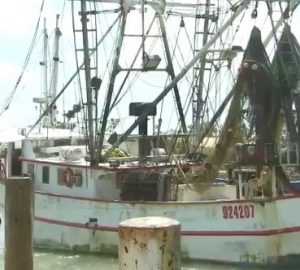 A man who fell into the water at the shrimp basin near the Port of Brownsville is in serious condition. The Brownsville Fire deputy chief said the man is in his late 60s to early 70s. He had no identification on him. Boat owner, Marcelino Ochoa, said the man fell into the water when he was trying to get on the boat and lost his footing just before 9:00 a.m. Ochoa said two workers jumped into the water to rescue the man. He said they’re having to count on older workers this season because of the new restrictions on worker permits for people coming from Central America. click here for short video 14:42
A man who fell into the water at the shrimp basin near the Port of Brownsville is in serious condition. The Brownsville Fire deputy chief said the man is in his late 60s to early 70s. He had no identification on him. Boat owner, Marcelino Ochoa, said the man fell into the water when he was trying to get on the boat and lost his footing just before 9:00 a.m. Ochoa said two workers jumped into the water to rescue the man. He said they’re having to count on older workers this season because of the new restrictions on worker permits for people coming from Central America. click here for short video 14:42
Seafood sales on Facebook lead to fine
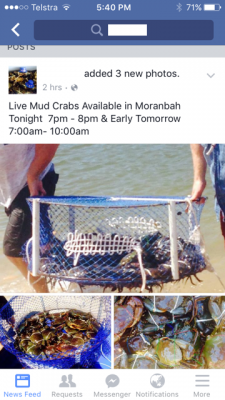 A recreational fisher who used social media to sell his catch has been fined $3000 for the illegal activity in the Mackay Magistrates’ Court. Queensland Boating and Fisheries Patrol Mackay district officer Craig Bambling said officers were alerted to the illegal activity by a tip-off on the Mackay district 24-hour complaint line. “The caller said a Facebook post had been shared on the Moranbah community notice board Facebook page,” Mr Bambling said. “A Fisheries officer did a search and found a Facebook page advertising the sale of fresh seafood. The next day a post was made on the same page stating: ‘Live Mud Crabs available tonight 7pm to 8pm and early tomorrow 7am to 10am’.” click here to read the story 13:04
A recreational fisher who used social media to sell his catch has been fined $3000 for the illegal activity in the Mackay Magistrates’ Court. Queensland Boating and Fisheries Patrol Mackay district officer Craig Bambling said officers were alerted to the illegal activity by a tip-off on the Mackay district 24-hour complaint line. “The caller said a Facebook post had been shared on the Moranbah community notice board Facebook page,” Mr Bambling said. “A Fisheries officer did a search and found a Facebook page advertising the sale of fresh seafood. The next day a post was made on the same page stating: ‘Live Mud Crabs available tonight 7pm to 8pm and early tomorrow 7am to 10am’.” click here to read the story 13:04
Will Britain’s fishermen be better off after Brexit?
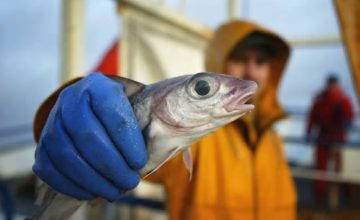 Britain’s fishing industry accounts for only a tiny part of the UK economy, contributing less than half a per cent to annual GDP. But it is hard to think of many sectors that will be more heavily affected by Brexit. For nearly 50 years, the Common Fisheries Policy has dictated where UK fishing boats can operate and how much they can catch. It has also given EU nations access to British territorial waters. Leaving the CFP will have a dramatic impact on coastal communities across the country. click here to read the story 12:17
Britain’s fishing industry accounts for only a tiny part of the UK economy, contributing less than half a per cent to annual GDP. But it is hard to think of many sectors that will be more heavily affected by Brexit. For nearly 50 years, the Common Fisheries Policy has dictated where UK fishing boats can operate and how much they can catch. It has also given EU nations access to British territorial waters. Leaving the CFP will have a dramatic impact on coastal communities across the country. click here to read the story 12:17
That sky keeps on falling. Apparently the anti-fishing foundation funding doesn’t follow suit.
 Nils Stolpe FishNet-USA – “New research shows that industrial fisheries are responsible for dumping nearly 10 million tons of perfectly good fish back into the ocean each year—enough to fill 4,500 Olympic-sized swimming pools. This news comes at a time when nearly 90 percent of the world’s fish stocks are threatened by overfishing.” (click here) This is from the latest bit of “fishing is ruining the oceans” alarmism, this time in a paper published in Fish and fisheries reporting on research funded by the Pew connected Sea Around Us. Sounds kind of awful, doesn’t it? Thousands of “Olympic-sized” swimming pools filled to the brim with dead and dying fish and shellfish, totally wasted and evidently rotting in the sun. But as is so often the case, with a little bit of perspective the truth isn’t anywhere nearly as catastrophic as the anti-fishing claque would have you believe. click here to read the story 09:46
Nils Stolpe FishNet-USA – “New research shows that industrial fisheries are responsible for dumping nearly 10 million tons of perfectly good fish back into the ocean each year—enough to fill 4,500 Olympic-sized swimming pools. This news comes at a time when nearly 90 percent of the world’s fish stocks are threatened by overfishing.” (click here) This is from the latest bit of “fishing is ruining the oceans” alarmism, this time in a paper published in Fish and fisheries reporting on research funded by the Pew connected Sea Around Us. Sounds kind of awful, doesn’t it? Thousands of “Olympic-sized” swimming pools filled to the brim with dead and dying fish and shellfish, totally wasted and evidently rotting in the sun. But as is so often the case, with a little bit of perspective the truth isn’t anywhere nearly as catastrophic as the anti-fishing claque would have you believe. click here to read the story 09:46
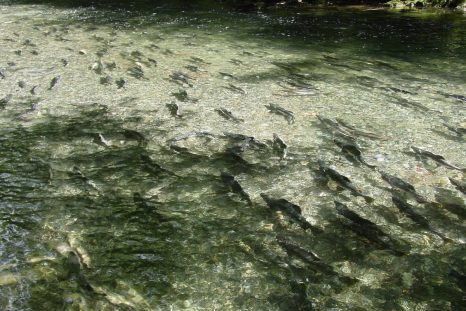
Scientist says hatchery strays could threaten wild fish populations
Whether it’s thanks to environmental cues, a keen sense of smell or a nifty magnetic instinct, Pacific salmon’s ability to navigate back to their home streams has captivated scientists and the general public alike. But, contrary to popular notions, a small number of Pacific salmon stray from their predetermined paths every year. And now, a new study found that hatchery salmon that wander from their home stream could pose an additional danger to their wild counterparts. Scientists have long warned that hatchery strays compete with wild fish for resources in streams and ocean waters, and could threaten wild populations by mixing genetically with them in unfavorable ways. click here to read the story 08:42





































